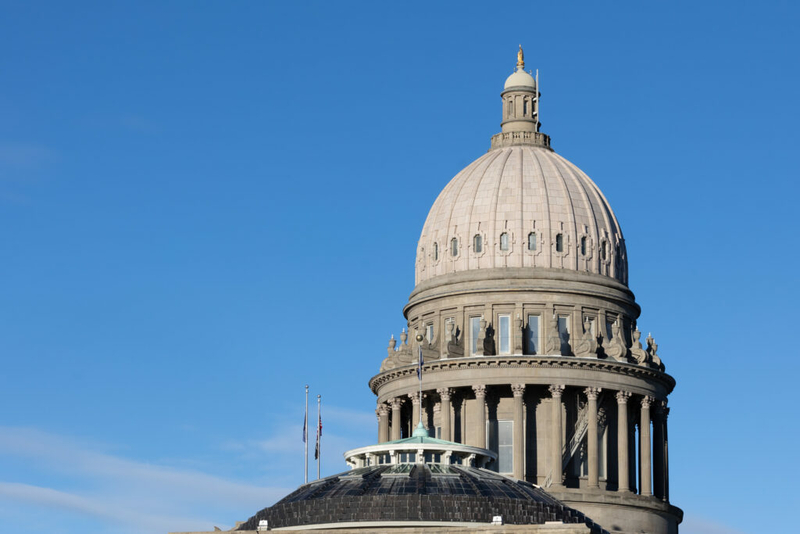Efforts to ban public drag will not advance during 2023 session, Idaho Senate leadership says

After making its way through the House of Representatives, a bill that would have banned drag shows in public facilities that rely on taxpayer funding will not advance during the 2023 legislative session.
Introduced in the Legislature in early March, House Bill 265 would have also restricted minors from attending a show involving “sexual conduct” or a show that is offensive to “an average person applying contemporary community standards within the adult community as a whole.” It would have allowed an individual to sue show organizers for $10,000 in “statutory damages.”
The bill previously passed through the House in a 41-21 vote, but it did not receive a hearing in the Senate.
In a Senate Affairs Committee meeting Thursday, two senators presented two different draft alternatives to House Bill 265.
Senate President Pro Tem Chuck Winder, R-Boise, said the draft legislation related to restricting “sexual exhibitions” will not move forward during the 2023 legislative session, but it will “be out there for discussion.”
Senators present two legislative alternatives to House Bill 265
Sen. Jim Guthrie, R-McCammon, told the committee that the purpose of presenting new draft legislation this late in the session is to offer an alternative to House Bill 265.
Guthrie said he has received dozens of angry emails expressing frustration that House Bill 265 is not getting a Senate hearing during the 2023 session, but he said the bill cannot move forward without incorporating all three parts of the Miller Test — a standard the U.S. Supreme Court uses to determine whether speech or expression is considered obscene.

“It will not move forward this year, but it will lead to some variety as we try to get our arms around this topic,” Guthrie said. “So we’ll have three [bills] out there with these two and 265 as we try to seek ways to solve the issue of protecting minors from obscenity.”
Guthrie said the “hefty” fines in House Bill 265 encourage the misuse of the legal system and put performing arts performances, cheerleading and other artistic productions at public schools and colleges at risk of legal battles.
Guthrie said the new draft legislation would incorporate all three standards of the Miller Test to protect literary, artistic, political and scientific components of productions.
“It allows for a cause of action through the Attorney General’s Office rather than a civil cause of action, and it does not prohibit the use of public facilities for adults for a variety of productions, concerts and live shows,” he said.
Sen. Ben Toews, R-Coeur d’Alene, also presented alternative legislation at the committee meeting Thursday that he said combines House Bill 265 and Guthrie’s legislation.
“This is an ongoing work to deal with the issue of minors being present at sexual exhibitions,” Toews said at the committee meeting. “It’s been a process to try to deal with this issue — trying to make sure that all the interested parties are OK and nobody’s affected that we don’t want to be affected.”
The committee voted to print both drafts of legislation. Sen. Melissa Wintrow, D-Boise, did not vote to support the motion for Toews’ legislation because she said it is “unnecessary” and “unfounded.”
”I understand this isn’t gonna go anywhere this session, which I’m pleased to see, but I do think that this is unnecessary,” she said during the meeting. “We already have obscenity laws, it’s overly broad and I do believe it is targeting a particular group of people – the LGBTQ community and drag shows.”








